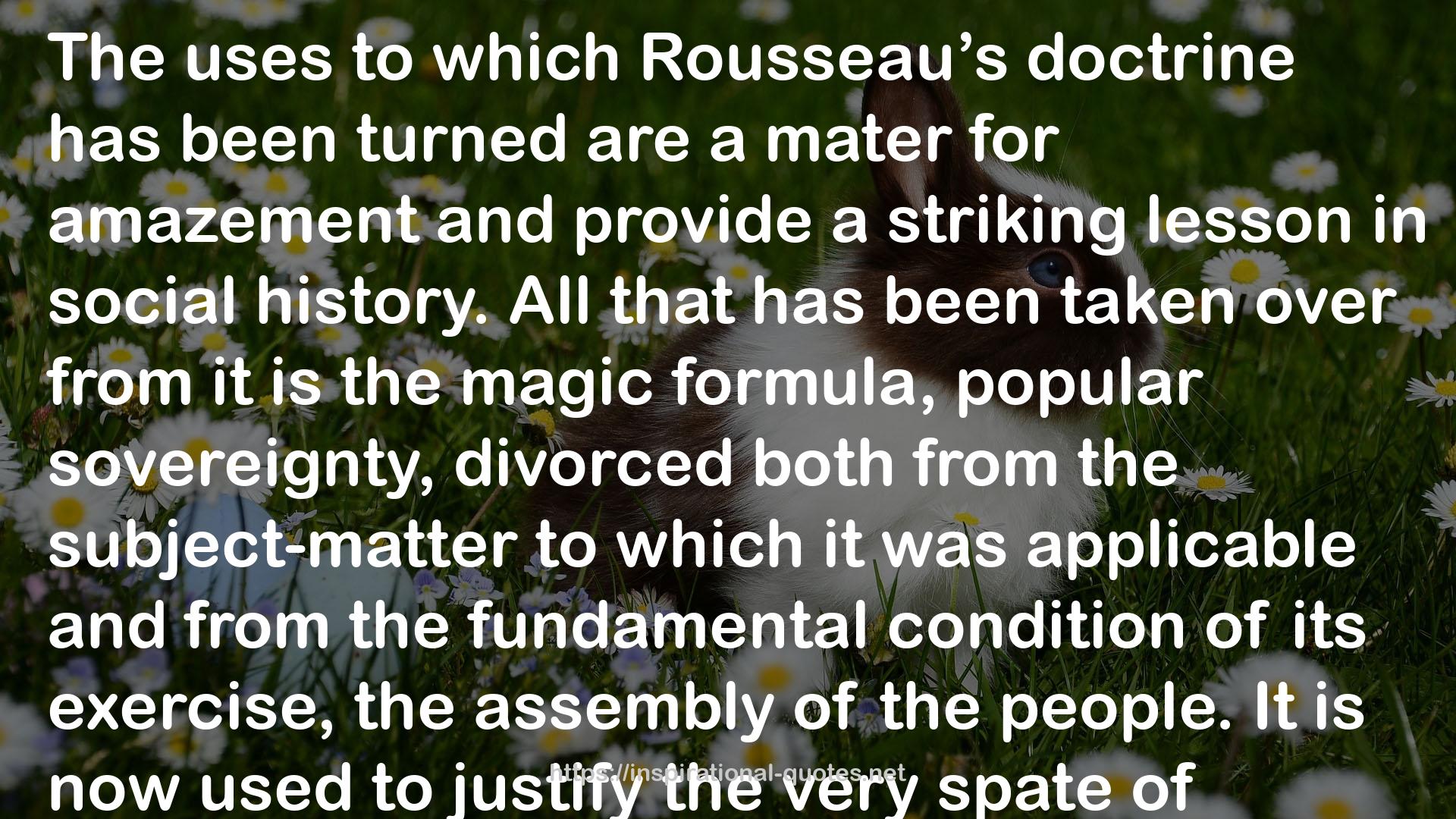" The uses to which Rousseau’s doctrine has been turned are a mater for amazement and provide a striking lesson in social history. All that has been taken over from it is the magic formula, popular sovereignty, divorced both from the subject-matter to which it was applicable and from the fundamental condition of its exercise, the assembly of the people. It is now used to justify the very spate of legislation which it was its purpose to dam, and to advance the indefinite enablement of Power – which Rousseau had sought to restrict!
All his school had made individual right the beginning and the end of his system. It was to be guarantee by subjecting to it at two removes the actual Power in human form, namely the executive. The executive was made subject to the law, which was kept strictly away from it, and the law was made subject to the sacrosanct principles of natural justice.
The idea of the law’s subjection to natural justice has not been maintained. That of power’s subjection to the law has fared a little better, but has been interpreted in such a way that the authority which makes laws has incoporated with itself the authority which applies them; they have become united, and so the omnipotent law has raised to its highest pitch a Power which it has made omnicompetent.
Rousseau’s school had concentrated on the idea of law. Their labour was in vain: all that the social consciousness has taken over from it is the association between the two conceptions, law and popular will. It is no longer accepted that a law owes its validity, as in Rousseau’s thought, should be confined to a generalized subject -matter. Its majesty was usurped by any expression of an alleged popular will.
A mere juggling with meanings has brought the wheel full circle to the dictum which so digusted our philosophers: “Whatever pleases the prince shall have force of law.” The prince has changed – that is all.
The collapse of this keystone has brought down the whole building. The principle of liberty has been based on the principle of law: to say that liberty consists in obedience to the laws only, presupposes in law such characteristics of justice and permanenece as may enable the citizen to know with precision the demands which are and will be made on him; the limits within which society may command him being in this way narrowly defined, he is his own master in his own prescribed domain. But, if law comes merely to reflect the caprices of the people, or of some body to which the legislative authority has been delegate, or of a faction which control that body, then obedience to the laws means in effect subjection to the inconstant, uncertain, unknown, arbitrary will of men whoch give this will the form of law. In that event the law is no longer the stay of liberty. The inner ligatures of Rousseau’s system come apart, and what was intended as a guarantee becomes a means of oppression. "
― Bertrand De Jouvenel , On Power: The Natural History of Its Growth
